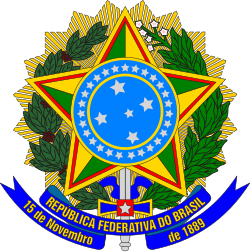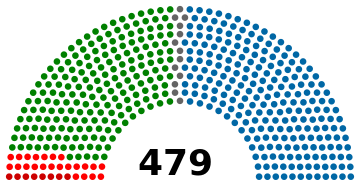| | |||||||||||||||||||||||||||||||||||||||||||
| |||||||||||||||||||||||||||||||||||||||||||
479 seats in the Chamber of Deputies 240 seats needed for a majority | |||||||||||||||||||||||||||||||||||||||||||
This lists parties that won seats. See the complete results below. | |||||||||||||||||||||||||||||||||||||||||||
25 seats in the Senate | |||||||||||||||||||||||||||||||||||||||||||
This lists parties that won seats. See the complete results below. | |||||||||||||||||||||||||||||||||||||||||||
| This article is part of a series on the |
 |
|---|
Parliamentary elections were held in Brazil on 15 November 1982. [1] The elections were conducted under the military dictatorship. [2] Massive popular street demonstrations led the military dictatorship to stage the elections.
Contents
The pro-government Democratic Social Party (the successor of the ruling National Renewal Alliance) won 235 of the 479 seats in the Chamber of Deputies and 15 of the 25 seats in the Senate. Voter turnout was 82% for the Chamber of Deputies and 83% for the Senate. [3]

